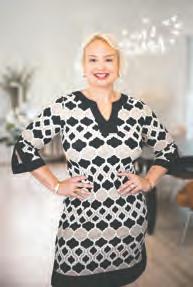





By David Rullo | Senior Sta Writer
Following a two-day detention hearing, U.S. Magistrate Judge Patricia Dodge ordered Mohamad Hamad held without bail pending trial, saying no conditions existed in which the safety of the community could be reasonably assured if he were released.
Hamad was arrested in October, along with Talya Lubit, in connection with antisemitic vandalism that was spray painted at both Chabad of Squirrel Hill and the Jewish Federation of Greater Pittsburgh.
At the time of his arrest, Hamad, who is a dual citizen of the United States and Lebanon, was granted home release. In March, Hamad filed a motion to modify the conditions of his release, asking the court to lift the home detention requirement and instead impose a curfew along with the continuance of electronic monitoring. That request was denied.

In late April, the federal government announced a superseding indictment returned by a grand jury charging Hamad, Lubit and Micaiah Collins with conspiracy, defacing and damaging religious property, making false statements and possession of destructive devices.
Several new pieces of information were revealed during the detention hearing, including that the FBI was concerned Hamad, a member of the Pennsylvania Air National Guard who was seeking top secret
clearance, might target a military training exercise with explosives.
Hamad, the government contended, joined the National Guard to learn combat skills hoping to utilize them as a Hamas operative. The defendant, government attorneys alleged, called himself a terrorist and stole Israeli flags from community members. Hamad also allegedly said bullets should “touch the forehead of Zionists” and that he wanted to die a martyr.
FBI Special Agent Gregory Battaglia told the court Hamad had threatened his own family members, including his parents, and that pro-Hamas videos were found on his social media accounts and in messages to friends.
An open question at the hearing was whether Hamad has a Lebanese passport. The FBI was unable to find one, but Hamad previously testified that one existed. He later recanted that testimony, saying he was confused and that his father handled the family’s passports.
Assistant U.S. Attorney Nicole Vasquez Schmitt said Hamad lied during his background check for the military, claiming allegiance to the United States while stating on social media he was loyal to Lebanon and Palestine. He also bragged about his ability to evade law enforcement, she said.
During the hearing, prosecutors said Hamad
By Adam Reinherz | Senior Sta Writer
Ahypothetical project fostered practical results. Throughout the semester, Carnegie Mellon University students in Andrew Stone’s second-year studio course explored architecture through human experience.
The monthslong undertaking involved designing a space for Jewish artist Benjamin Schwartz, a Squirrel Hill-based painter who goes by “Benny Blindspots” due to his legal blindness. Blending reality and fantasy, students were told that Schwartz’s potential studio would be located in a vacant Bloomfield lot.
Because the site actually exists, students were required to “work within real constraints,” Stone said. And, by repeatedly meeting with Schwartz “as if he were a real client,” students discovered how collaborative processes tailor to users’ needs.
During the semester, CMU student David Tang was tasked with not only creating digital sketches and carving prototypes, but visiting Schwartz’s Squirrel Hill studio, exploring its subterranean space and speaking with the artist.



By Adam Reinherz | Senior Staff Writer
Anew library is catering to local readers. The Pittsburgh Jewish Library, created in memory of Rabbi Yosef Grossman, opened last month.
Designed by Grossman’s sister-in-law Squirrel Hill resident Chedva Jaffa, the library, which is located at 5831 Bartlett Street in the basement of Young Israel of Pittsburgh, features more than 400 titles from popular publishing houses including ArtScroll, Feldheim and Israel Bookshop Publications.
The works, which include novels, nonfiction, history and short stories, provide access to insights largely unavailable in the city, Jaffa explained.
Pittsburgh has a wonderful public library system, she said, but many of the books within its collections aren’t necessarily “geared to our community.” Additionally, in lieu of having to “filter” books at the public library, parents of younger readers, or teens themselves, can choose works at the Pittsburgh Jewish Library that parents already “approve of.”
Curating content suitable for patrons is a familiar practice at libraries nationwide.
According to the Carnegie Library of Pittsburgh, which is frequented by more than 2.9 million people annually, its collections “support the educational, leisure and general information needs of the community.”
The Brooklyn Public Library, which serves 620,000 active cardholders, acquires titles while striving to “meet the current requirements of the community and to

Jewish Community Study. By eschewing materials deemed prurient or violent, the Pittsburgh Jewish Library follows a model already existent in other cities.
The Zichron Yosef and Geula Library in Lakewood, New Jersey, provides its community with “Jewish books of all kinds without compromising on Torah values.”
Similarly, the Sonnenwirth Family Jewish Library in St. Louis, provides children in the “St. Louis community ages 8-18 with reading material that reflects Orthodox Jewish values.”
As a parent, Grossman did his best to restrict “non-Jewish influences” within the home, Jaffa said. Despite his concern, he was an avid proponent of literacy. “He was always buying books for his kids that reflected community values, that were about living a frum (observant) lifestyle. He was very into that.”
Grossman, Jaffa continued, was also a firm believer in lending books to others and ensuring finances did not preclude Pittsburghers from obtaining meaningful titles.
The Pittsburgh Jewish Library, which officially opened March 21, relies on donations and tiered affiliations.
An individual membership is $20 per year, while a family membership costs $50.
anticipate future needs.”
The Pittsburgh Jewish Library reflects desires espoused by several members of Pittsburgh’s Orthodox Jewish community,
Jaffa explained. Among Pittsburgh’s nearly 50,000 Jewish residents, nearly 9% are Orthodox, according to the 2017 Greater Pittsburgh

SUBSCRIPTIONS
subscriptions@pittsburghjewishchronicle.org 412-687-1000, ext. 2
TO ADVERTISE advertising@pittsburghjewishchronicle.org 412-687-1000, ext. 1
EDITORIAL DEPARTMENT
Email: newsdesk@pittsburghjewishchronicle.org
BOARD OF TRUSTEES
Evan H. Stein, Chair
Evan Indianer, Vice Chair
Derek Smith, Treasurer
Gayle R. Kraut, Secretary
Gail Childs, Dan Droz, Malke Steinfeld Frank, Seth Glick, Tammy Hepps, Judith Kanal, Cátia Kossovsky, Charles Saul
GENERAL COUNSEL
Stuart R. Kaplan, Esq.
The facility is open Fridays 2:30-3:30 p.m. Members may only check out four books at a time, but much is subject to change, Jaffa said. “We hope to expand and serve even more of the community.” PJC
Adam Reinherz can be reached at areinherz@pittsburghjewishchronicle.org.
5915 Beacon St., 5th Floor Pittsburgh, PA 15217
Main phone number: 412-687-1000 Subscriptions: 412-687-1000, ext. 2
Jim Busis, CEO and Publisher 412-228-4690 jbusis@pittsburghjewishchronicle.org
EDITORIAL
Toby Tabachnick, Editor 412-228-4577 ttabachnick@pittsburghjewishchronicle.org
Adam Reinherz, Senior Staff Writer 412-687-1000 areinherz@pittsburghjewishchronicle.org
David Rullo, Senior Staff Writer 412-687-1000 drullo@pittsburghjewishchronicle.org
ADVERTISING
Amy Weiss, Account Executive (412) 613-0697 aweiss@pittsburghjewishchronicle.org
PRODUCTION
Jeni Mann Tough Production Manager
Carl Weigel Art/Production Coordinator Subscriptions subscriptions@pittsburghjewishchronicle.org 412-687-1000, ext. 2
Published every Friday by the Pittsburgh Jewish Publication and Education Foundation 5915 Beacon St., 5th Floor Pittsburgh, PA 15217
Phone: 412-687-1000
POSTMASTER: Send address change to PITTSBURGH JEWISH CHRONICLE, 5915 BEACON ST., 5TH FLOOR PITTSBURGH, PA 15217 (PERIODICAL RATE POSTAGE PAID AT PITTSBURGH, PA AND AT ADDITIONAL MAILING OFFICES) USPS 582-740

Manuscripts, letters, documents and photographs sent to the Pittsburgh Jewish Chronicle become the property of this publication, which is not responsible for the return or loss of such items.
The Pittsburgh Jewish Chronicle does not endorse the goods or services advertised or covered in its pages and makes no representation to the kashrut of food products and services in said advertising or articles. The publisher is not liable for damages if, for any reason whatsoever, he fails to publish an advertisement or for any error in an advertisement. Acceptance of advertisers and of ad copy is subject to the publisher’s approval. The Pittsburgh Jewish Chronicle is not responsible if ads violate applicable laws and the advertiser will indemnify, hold harmless and defend the Pittsburgh Jewish Chronicle from all claims made by governmental agencies and consumers for any reason based on ads appearing in the Pittsburgh Jewish Chronicle

Two of the region’s well-regarded firms, The Monteverde Group, LLC and Jacobson Associates, Inc., are proud to announce their merger, combining expertise in the financial services and employee benefits fields.
This merger reflects decades of collaboration between the firm’s founders, Blair Jacobson and James Monteverde, who have shared a professional bond for over five decades. Managing Partner and Chief Investment Officer of The Monteverde Group, Craig Shensa, and Jacobson Associates’ President, Larry Jacobson, bring a deeply rooted partnership to the table, having been friends since their high school years at Shady Side Academy. These enduring relationships are the bedrock of the merger, founded on mutual respect, trust, shared values, and an unwavering commitment to prioritizing client needs.
Together with their other Equity Partners, Daniel Martin, Wendy Astorino and Ryan Duchak and an experienced, well -educated team of professional advisors, the firm will continue its commitment to providing clients’ planning goals and objectives with planning strategies.
“Our firms prioritize Trust, Integrity, and the financial wellbeing of our clients, said President James Monteverde. “By combining our resources and leveraging our collaborative strengths and capabilities we seek to create a stronger, more dynamic organization well positioned for growth and longevity.”
“This merger is more than a business decision. It is the culmination of a shared vision that has been years in the making.” added Blair Jacobson. “Together, we are excited to build on the Trust we’ve established to further empower our clients with the tools and knowledge they need to create a roadmap to confidently navigate their financial futures.”
Craig Shensa added, “Our firms share a common philosophy – placing clients first.” “By merging our teams, we’re creating
a more robust firm dedicated to addressing the full spectrum of financial planning challenges and opportunities faced by families, business owners and organizations.”
Larry Jacobson echoed this sentiment. “Joining forces allows us to leverage our combined expertise to provide clients with an enhanced level of service and a broader range of strategies to safeguard their financial future and be better positioned to take advantage of their opportunities.”
The newly combined firm will operate as The Monteverde Group, LLC whose mission remains true to each of the founding firms’ missions: To provide comprehensive clientcentric strategies that help achieve financial freedom, growth and client confidence.
For more information, please contact us at: (412) 391-0419 or visit us online at: www.monteverdegroup.com.
Securities and advisory services offered through LPL Financial, a Registered Investment Advisor, member FINRA/SIPC



have negative consequences on physical and mental health.
By Family Features
Awalk isn’t just good for your body; it’s a simple, powerful way to care for your mind and soul. Physical activity, like walking, reduces stress, boosts mood and promotes overall wellbeing. Yet physical activity levels in the United States continue to decline, a trend threatening both mental and physical health.
Less than half of adults and fewer than 1 in 5 children in the U.S. get the recommended amount of physical activity needed for heart health, according to the American Heart Association’s 2025 Heart & Stroke Statistical Update.
National recommendations call for children to get at least one hour of physical activity each day, but the latest statistics show less than 19% of children in the U.S. achieve that target. Meanwhile, less than half of adults get the recommended 150 minutes or more of weekly physical activity.
What’s more, according to data from a National Health and Nutrition Examination Survey, 1 in 4 U.S. adults sits for longer than eight hours each day, which can
For decades, the American Heart Association has championed the importance of physical activity in communities across the country. These tips and information can help you understand how a brisk walk can make a world of difference for heart health and mental clarity.
Benefits of physical activity
Staying active is one of the best ways to keep your mind and body healthy.
The physical health benefits may be obvious, but research suggests physical activity can also help bring more joy to your life. According to the 2019 Physical Activity Guidelines for Americans, people who get the recommended amount of physical activity are less likely to experience depression.
Regular physical activity enhances your mood, sharpens your mind, improves sleep and boosts overall well-being, all while reducing the risk of disease and depression and increasing both the quality and longevity of life.
How
Exercise as simple as a brisk walk can put a major spring in your step. It can even energize you to finish other tasks at hand, whether it’s cooking or running errands. Give your daily physical activity level a boost with these tips:
• Exercising outdoors is a great way to get moving. Spending time outdoors has been shown to reduce stress, promote a sense of belonging and improve mood. It’s even better if you can enjoy the sunshine
Spending time outdoors has been shown to reduce stress, promote a sense of belonging and improve mood.
outside, which can improve mood, boost your immunity and help you get some vitamin D.
• Invite a family member or friend along with you. It’s good for them, it’s good for you and it’s good company all around.
• Instead of wondering if you’ll move today, explore how you’ll move. A walk, a dance or a stretch all count.
Getting pets involved
Pets are part of your family, and they can help you get healthy together. Pets provide a fun reason to spend more time outside and get the exercise needed to reduce the risk of disease later in life.
Getting moving along with your pet adds more exercise to your routine, which means living longer, reducing risk of dying from heart attack or stroke, reducing risk of diabetes, reducing stress and even boosting your overall happiness and well-being.
Exercising with your pet can also mean enjoying more socializing. You may find yourself meeting other dog owners in your area on a walk or at the dog park.
Learn more about how simple habits like walking can support your overall health at heart.org/MoveMore. PJC




At every stage of life, especially during times of distress, crisis or uncertainty, many people turn to a chaplain for spiritual, emotional and, when requested, religious guidance. Even in stable times, many people find comfort in the presence of a trusted listener who offers companionship and the opportunity for reflection.
chaplain can provide a valuable connection to others, especially for those without access to their own spiritual leaders.
As we age, many experience great personal loss, such as the death of friends or a spouse, which can cause intense grief and loneliness. During these times of mourning and heartache, the presence of a kindhearted counselor can be a vital source of support, helping individuals cope with grief, process their emotions and begin to heal.
While many older adults thrive in the later stages of life, others find it more difficult. Chaplains can be a valuable source of support for seniors facing the challenges of aging and life transitions. For those who feel unfulfilled in retirement and are missing the sense of purpose and structure their careers provided, for example, spiritual guidance and wisdom can help them rediscover meaning. Further, the stress of managing health issues and the realities of aging can also feel overwhelming. Support and compassionate insight can provide comfort and help seniors navigate these challenges. Seniors who are homebound, in particular, may feel isolated and disconnected from the world. A visiting
Chaplaincy is about creating a safe, non-judgmental space where people can navigate personal challenges and obstacles. Although their backgrounds are rooted in spiritual traditions, this form of care extends beyond religious boundaries. Supporting people from all different backgrounds is special and important. Some may request religious rituals, observances and discussions about their faith while others may find spirituality in reflection and conversation. They will help the individual in whatever way is most comfortable and meaningful to that person.
Chaplains have a very important role serving those at the end of life by providing compassionate, person-centered care that addresses individuals’ spiritual, emotional





















At Concordia, we provide comprehensive care at our many locations in western PA or in your own home –all backed by 140+ years of experience. We have you covered with outstanding retirement living, home health, skilled nursing, personal care, hospice services and more. Learn more about our mission, services and career opportunities at www.ConcordiaLM.org or connect with us on social media.








Singer:
Continued from page 9
As an adult, Singer’s stories were few. But some tales emerged.
“He was always having bad dreams at night, and he would have night terrors,” Fischbach said. Years ago, little was known about PTSD, and “my mother just felt that speaking [about the war] would be the worst thing for him.”
Singer wasn’t exactly free to stop and spout. As a grown man, he often worked two, even three, jobs at once. It’s difficult imagining when he would have had the time to talk about earlier horrors, Fischbach continued. But also, “I think emotionally, my mother felt that he was too fragile to deal with it.”
A lifetime of episodes were dammed, but Singer’s story surfaced in spurts.
“When I was a little girl, I had a lot of freckles. I hated my freckles, and he would say, ‘Oh no, no, no, you look just like my sister. She had lots of freckles, too.’ And that was all that he would say before he would start to cry,” Fischbach said. “We did not know a lot about my dad and his experiences. We just knew every once in a while he would share a bit of information, and then he would go back into his shell, and we wouldn’t be able to ask anything or know anything until the next
Small:
Continued from page 10
and other important needs. These visits often include deep conversations, reflections or music, or simply the warmth of companionship, listening and providing a comforting presence.
Family members whose loved ones are at the end of life also benefit from this compassionate support. Chaplains offer a calm, caring presence during this often unfamiliar and overwhelming time. Just as they do for the patient, they create a safe space for family members to have open conversations and
Dementia: Continued from page 12
the Jewish Healthcare Foundation aims to reduce stigma and promote inclusion through two initiatives:
• Dementia Friends Pennsylvania: Offers free, 60-minute informational sessions to change how people think, act and talk about dementia. Sessions are open to community members of all ages and help raise awareness while promoting empathy and understanding.
• Dementia Friendly Pennsylvania Communities: Supports communities across Pennsylvania that actively work to be informed, safe, respectful and inclusive of people living with dementia and those important to them.
of bereavement. From the perspective of a chaplain, one of the most beautiful qualities of life is the way people relate and connect to each other. They approach each visit with empathy, respect and a sincere desire to help. Even if they have not personally experienced the challenges faced by the person they are visiting, their authenticity and genuine care about the other person and their situation will allow them to deeply connect. Sometimes, simply being
“I like food. I enjoy it and I don’t look too bad. I’m not too heavy,” he told the Chronicle. -
tration camp. You couldn’t get it. Only on Christmas they would give us ham, but it was Singer, who frequently mentions God and“but you
And no matter what, life must be extolled, he continued. “People have so much hate. They’re killing each other and that doesn’t -
As the Holocaust survivor reaches 100, life,
Respect is an integral part of chaplaincy

itual care. While we all have a unique personal journey, it is important to respect and acknowledge each other’s differences. These differences do not need to divide us, rather they can complement each other. Our strength is not only in our individual identity, but in how we relate to one another and work together. Diversity and respect for our differences is a virtue. Chaplaincy, like caregiving, is a way of reaching those that we are providing care for, but also helps us have a better understanding of ourselves. Through being good to others, we reach our true sense
death and the divine are frequent topics.
“I always pray to God. I go to daven every Saturday morning,” he said.
The comment spurred a memory.
Singer said he can still see his father standing in the basement of their home in September 1939. It was morning, the German Nazis were nearing and Singer’s father had donned a prayer shawl and phylacteries: “I said they’re going to see you in the tallis and tefillin. They’ll kill you.”
His father told him not to worry, that God will help and the messiah will come.
“Moshiach is coming,” Singer said with a chuckle. “I’ve been waiting for 100 years.”
The retired restaurateur and caterer is set to celebrate his birthday on May 10. At both of his parties there will be vanilla cake with strawberry filling. There’ll be tuna, salmon, bagels and blintzes. Along with plates of food, Singer will be surrounded by family and friends. He might even share that May 10 isn’t the day he was born.
Those records were destroyed in the war, he said. “I chose May 10 because that was the day the Russians came in. They came in that day and they opened the door for us in Theresienstadt.” PJC
Adam Reinherz can be reached at areinherz@pittsburghjewishchronicle.org.
of self and fulfill our true nature and purpose. As we enter the month when we will celebrate Lag B’Omer, we are reminded of the lesson from the story of Rabbi Akiva’s students that showing respect for one another is important. Through the teachings of Rabbi Shimon Bar Yochai, we understand that — Sheves Achim Gam Yachad — we are stronger and better when we are united together. May we embrace this as a community and may we be an example of respect, understanding and unity.
PJC
Rabbi Dovid Small is director of pastoral care at the Jewish Association on Aging.
specialized assisted living community offering person-centered care in a secure, home-like environment designed to meet the unique needs of those living with dementia.
• Memory Café at the Jewish Community Center of Greater Pittsburgh (bit.ly/jccmemorycafe): A memory café is a welcoming social gathering for people living with dementia and their care partners, family and friends. It provides a safe, relaxed and supportive space to enjoy conversation, music and activities.
The monthly memory café at the Squirrel Hill JCC, with JHF support, fosters connection and community in a judgment-free setting, and is expanding to the South Hills JCC this summer.
• Jewish Association on Aging (jaapgh.org/ memory-care): The JAA provides comprehensive memory care services including:
• Anathan Adult Day Memory Care: Individuals who live at home can spend the day on the JAA campus participating in engaging activities designed for people living with dementia. This program supports participants and their care partners, especially those who work or need time for themselves.
• A hava Memory Care Residence: A

If you are concerned about a loved one’s memory or behavior, you are not alone — and you don’t have to navigate this journey by yourself. From understanding the signs of dementia to accessing meaningful support, your awareness can make a difference. PJC
Stacie Bails-Bonenberger, MOT, OTR/L is a statewide coordinator for Dementia Friendly Pennsylvania and program manager of Aging Initiatives at the Jewish Healthcare Foundation.
Hamad:
Continued from page 1
attended the Valley View Presbyterian Church in Garfield 10 times beginning in February 2025. Hamad’s co-defendant Michaiah Collins’ father, Chad Collins, is a pastor at the church.
While acknowledging that anyone can worship anywhere, Dodge called the timing of Hamad’s attendance at Valley View Church “interesting,” noting that it coincided with the delivery of subpoenas for the grand jury that ultimately led to the indictment of Hamad and his co-defendants, and an effort to have those subpoenaed resist testifying.
Some members of the Collins family have a history of anti-Israeli activism. Chad Collins’ daughter Nesta Collins was arrested for obstructing law enforcement and disorderly conduct at an anti-Israeli encampment at the University of Pittsburgh last year.
In addition to his pastoral duties with Valley View Presbyterian Church, Chad Collins is a national organizer with Friends of Sabeel North America, an anti-Israel, pro-BDS organization. He was at the anti-Israel protest and encampment on Pitt’s campus following Israel’s response to Hamas’ Oct. 7, 2023, terrorist attack on the Jewish state.
Chad Collins served as a spokesperson at a
Architecture:
Continued from page 1
The takeaway, Tang said, is people interact with areas in different ways “and we don’t see that by just designing it in a room. We need to be able to experience it.”
Site visits and discussions weren’t the only mechanisms for gaining better appreciation of their client. At one point during the semester, Tang and his 15 fellow classmates were blindfolded and asked to walk indoors with canes.
“That was really hard for us to navigate. We had to think about dimensions,” Tang said. Often, when putting together a design, people fail to recognize “just the amount of steps it takes for you to get from point A to point B.”
The blindfolding experience, along with multiple conversations with Schwartz, elicited new awareness.
Designers can sometimes “over-engineer some elements,” Tang said. Spending time with a client, observing how they operate and wish to work, enables a realization of the “power a person has” and fosters greater comprehension of the “space itself.”
Fellow CMU student Miles Rainwater said the semester-long study resulted in newfound regard for revision.
“A lot of times we rush or finish things for a deadline, and we’re kind of the only people whose hands have been on it — apart from maybe the instructor’s — but at the end of the day, the user is the most important element,” Rainwater said. Experiencing an “adaptive process” means revisiting not only “whatever your concept is,” but altering an understanding of how the “user ends up working with that product.”
Months of exchange between Schwartz, Stone and the students culminated at CMU on April 28. Standing beside paper designs and 3D models, students pointed to sliding doors, innovative handles and creative floor plans. With Schwartz and Stone nearby, college sophomores demonstrated their work and answered
press conference following the dismantling of an anti-Israel encampment.
He also was an organizer of the Rev. Munther Isaac’s visit to Pittsburgh last summer.
Isaac is a Palestinian Christian pastor who was called “the high priest of antisemitic Christianity” by the Rev. Johnnie Moore, president of the Congress of Christian Leaders.
“He spreads hate from the city of Jesus’ birth,” Moore told Jewish Insider.
While in Pittsburgh, Isaac met with and was photographed with Collins, Pittsburgh Mayor Ed Gainey and Rep. Summer Lee.
Collins also has made spurious claims, publicly stating that Jesus was Palestinian and that there are “many Palestinians who are Jewish.” He recently shared information about a fundraising event for Gainey’s reelection, writing, “Help us defeat AIPAC AGAIN!!!!!”
Neither AIPAC nor the super PAC United Democracy Project, participates in local or state elections.
Following Hamad’s detention hearing, the Chronicle contacted the Pittsburgh Presbytery, of which Valley View Presbyterian Church is a member. The presbytery provides resources, and advises and assists “members through challenges and transitions,” according to its website.
General Minister Jessia McClure Archer said in an email that the presbytery is committed to
love, peace and reconciliation “for all people, across all differences.”
“We remain committed to ecumenical and interfaith partnerships and unequivocally denounce violence and intimidation in every form, regardless of who is involved. Our faith compels us to uphold the God-given dignity of every human being and to defend the freedom of all people to worship and live without fear.”
McClure Archer said that a May 12 meeting between a variety of Christian and Jewish leaders and partners was being organized through the Christian Associates of Southwestern Pennsylvania.
Christian Associates Executive Minister the Rev. Liddy Barlow said she is coordinating the meeting at the request of the presbytery, and that the meeting was being organized because it is clear “that this situation caused harm to our Jewish neighbors.”
“I think it’s really important for the Christian community to stop and listen and to make whatever moves are possible towards repair,” Barlow said.
When news of the superseding indictment was shared on social media, the Rev. Canon Natalie Hall at Church of the Redeemer in Squirrel Hill posted about the incident, writing, “Our Jewish friends and neighbors are upset and frightened for their safety. It is difficult to

questions from classmates, other CMU faculty and passersby.
Of particular interest to Stone were documents in the corner of CMU’s Great Hall.
The tactile drawings with ink that “kind of swells off the page” allows users to “physically feel the plan,” he said. These drawings, which were produced with help from the Library for Accessible Media for Pennsylvanians, enable both architects and clients to experience “a simpler way to communicate.”
Bolstering connection and appreciation was integral to the course, and Schwartz was a perfect partner, Stone continued. “I wanted to teach a studio that was very kind of process-oriented.”
When architects or creatives design in a shop the results aren’t exactly what’s intended. There’s a “kind of feedback loop where you have an idea in your head, you’re trying to bring it into the physical world, and there’s pushback against that because you have to deal with the material qualities or the tools that are available to you,” Stone said. “If you embrace that and go with it, it can make some really interesting designs, and that’s exactly how Benny works. He’s not one of those artists that plans out the whole painting beforehand and has a grid where he’s doing a paint-by-number type of thing. He allows
live in a state of constant vigilance. Members at my church are reaching out to Jewish friends, neighbors, colleagues, and acquaintances this week to check in — maybe even have a cup of coffee for conversation.”
Hall told the Chronicle it is important to stand up “for the sake of our neighbors.” She said she has spoken with many individuals who, since the arrests have come to light, “have found it possible to hold multiple difficult truths in the same space at the same time.”
“These are not people who are going to magically go all in supporting everything the state of Israel does,” she said. “They have complicated feelings about it much the same way they all have complicated feelings about our own government. I think it’s refreshing to hear people come to understand that it’s possible to hold these multiple facets of a really complex situation in the same space and in the middle of that directly support friends, neighbors and colleagues.”
B oth Lubit and Micaiah Collins were released pending trial.
The Chronicle contacted both Gainey and Lee for comment but received no response from either official prior to publication. PJC
David Rullo can be reached at drullo@

himself to be immersed in the process, which is really what I’m trying to get my students to do.”
Schwartz, who throughout the semester not only spoke with students and exhibited his space but allowed visitors to watch him paint, praised the professor and his students.
“They were clearly listening when they came and visited the studio. They addressed the needs that we had chatted about each in their own unique way,” Schwartz said. Students created “vastly different models for creating the space and finding pathways,” and as a result “I found myself, even at my own studio, rethinking my space, and I’ve made changes.”
What Schwartz didn’t transform, though, was his sense of humor or identity.
When students scheduled a Friday talk with Schwartz at CMU, the artist remarked he was happy to meet but that the conversation must conclude well before Shabbat began.
“If I don’t get home before sunset, I’ll turn into a pillar of salt,” Schwartz said.
On a separate occasion, after observing the project’s progress, Schwartz commended the students.
“I told them, ‘I can tell you guys are really keeping busy and actually doing work, not just going out to protest,’” he said.
Schwartz, who grew up in Squirrel Hill and
graduated from the University of Pittsburgh, said that working with Stone and the students afforded meaningful insight.
“I’m 36, I’m starting to move off into that next generation of being fully grown, or whatever you want to call it,” he said. “Seeing the sincerity with which they approached the whole project, they didn’t make me feel like they were just there for school or for a grade — I’m sure they’re committed to getting those A’s, that’s the kind of students they are — there was genuine interest. There was genuine excitement from many of the students in terms of how they probed, and questioned and wanted to really know what they could design.”
The students’ passion and sensitivity for the project reflected something deeply human, Schwartz continued.
As architects or creatives, “you could just design this home or whatever,” he said. Instead, these students are “talking about accessibility right at the beginning of their artistic careers.”
Riffing on his own visibility, Schwartz laughed and continued, “It opened my eyes.” PJC
Adam Reinherz can be reached at areinherz@pittsburghjewishchronicle.org.
By Suzan Hauptman | Special to the Chronicle
When I was younger, I couldn’t pronounce “Bubbie” or “Grandma”; instead, it came out as “Goummy.” So, Goummy it was!
My grandmother Sarah Berman was a first-generation American who married an immigrant, my grandfather, George Berman. George came to the United States from Latvia in 1923 at the age of 10. He and his brothers became very successful in the scrap metal industry in Pittsburgh. My grandmother was the bookkeeper for the company and loved to cook. I loved everything she made, and it was all from scratch.
I remember sitting at the kitchen table, laying out the crepes for blintzes. The “muun cookies” (poppyseed) were amazing and I’m so sorry that recipe is long gone. But the one thing my Goummy made that no one could resist was chopped liver. I didn’t even know what liver was, but this stuff was great! She used the old recipe using shmaltz and a hand grinder. She substituted a secret ingredient for the shmaltz after my Zaddie had a heart attack and the doctor told Goummy that she was trying to kill him with all the fatty old country recipes.
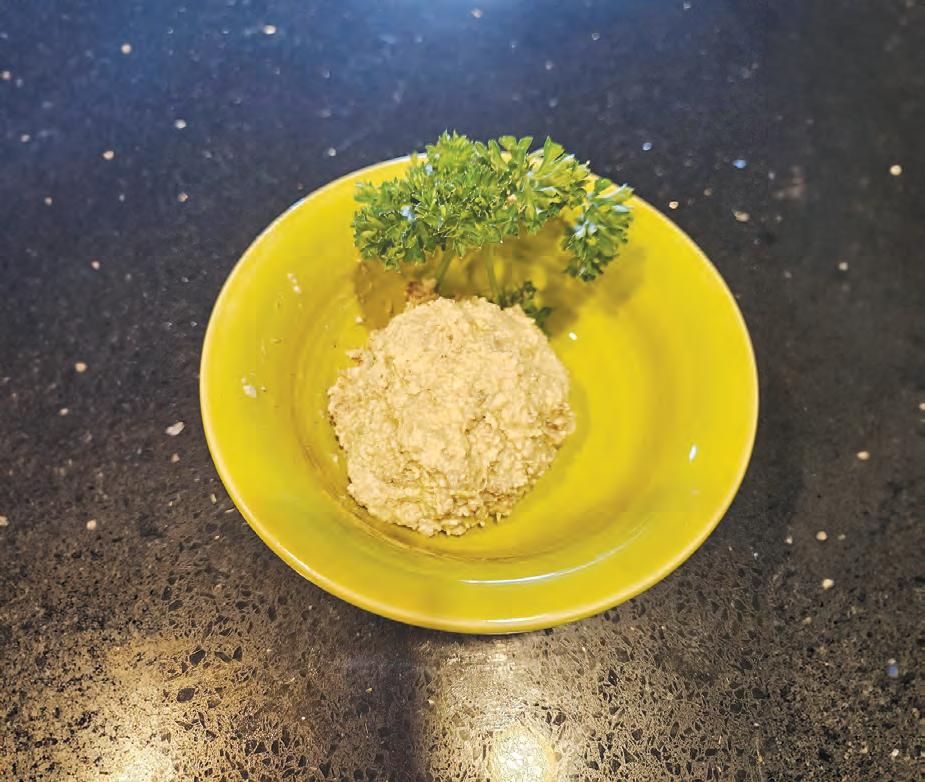
it. When she finally agreed to tell me, it was not well defined and I had to take notes. She told me the ingredients, but not the amounts. Over the years, I figured out most of the amounts, but I still add a little too much of something, or not enough of something else. Still, it always brings us back to those

until translucent. Transfer into a large mixing bowl.
• Wash the liver.
• Spray a baking pan with cooking oil.
• Salt lightly each side of the liver and place in the baking pan.
• Cook the liver for about 20 minutes until all pink is gone.
• Wash liver again.
• Make certain any skin on the liver is removed.
• Cut the liver into smaller pieces.
• Put the liver into another small mixing
• Pull the celery ribs off the stalk.
• Using a peeler, peel the celery’s first layer of celery string. (This is a very important step. If you leave the string in the celery, the final dish will be stringy.) This is the most time consuming step.
• Cut the de-stringed celery into smaller lengths (about 3 inches).
• Put the celery in a small mixing bowl.
• Remove the shells from all of the eggs.
• Put the eggs in another small mixing bowl.
My Goummy used a hand grinder, so, of course, I used a hand grinder. After I bought the second hand grinder and my cousin managed to cut her finger on the blades (the added ingredient of blood might have added something to the chopped liver that time…), we decided to try a food processor. It worked! Gone are the days of the grinder.
We often assigned another cousin, Chuck, the duty of “celery boy.” His sole job for the morning (we used to make more than 15 pounds at a time) was to pull the strings off of the many ribs of celery. This is a crucial step and one that cannot be ignored. Originally, it was because the strings caused the grinder to jam; we would have to disassemble the grinder every 10 minutes. We aren’t as diligent with the food processor, but you definitely don’t want stringy chopped liver.
This recipe brings my family back to a place and time when things were easier and times together were more frequent.
Goummy’s chopped liver
Oven temperature: 350 F
Time: 2 hours
Ingredients:
Onions, 3-pound bag
Beef liver, 2 pounds
Celery, 1 bunch/stalk
Eggs, hard-boiled, 1 dozen
Miracle Whip, 32-ounce jar
Vegetable oil, 1 tablespoon Salt to cook liver
Yield: 5-7 pounds of chopped liver
Instructions:
• Preheat oven to 350 F
• Chop onions
• In a frying pan, heat the vegetable oil. Once the oil looks shiny, add the onions. Sauté the onions for about 6 minutes or
• You are now ready to construct the chopped liver.
• Put the grinder/shredding attachment disc on the food processor. Put the lid on so that you can put the ingredients through the chute and use the pusher to move the food toward the shredding disc.
• Take an egg, a piece of celery and a piece of liver and push it through the chute. Continue until the food processor is full. Empty contents into the large mixing bowl where the onions have been hanging out. You may need to do this three or four times until all ingredients have gone through the food processor. There is no real order, just make sure they are well blended.
• Once all the ingredients are well blended, add tablespoons of Miracle Whip and mix. Do not put too much in at a time. You will probably use more than half the jar at this time.
• Cover the bowl.
• Chill for a few hours. Ideally chill overnight.
• Before serving, look and taste. Often the liver absorbs the Miracle Whip and you need to add more. Do that now.
• You can sprinkle parsley or paprika for a nice presentation.
• Serve with bread, crackers, or matzo. PJC
This recipe will be included in Suzan Hauptman’s upcoming cookbook “A Cabin Cookbook: A collection of cozy recipes when you have all day or just a few minutes.”
Do you have a tried-and-true dish that comes with an interesting origin story? If so, we want to hear from you! Submit recipes along with their backstories to newsdesk@ pittsburghjewishchronicle.org, and write “Recipe” in the subject line. Please include a photo of the dish. You may see your submission as part of our new column “Savoring Stories”!



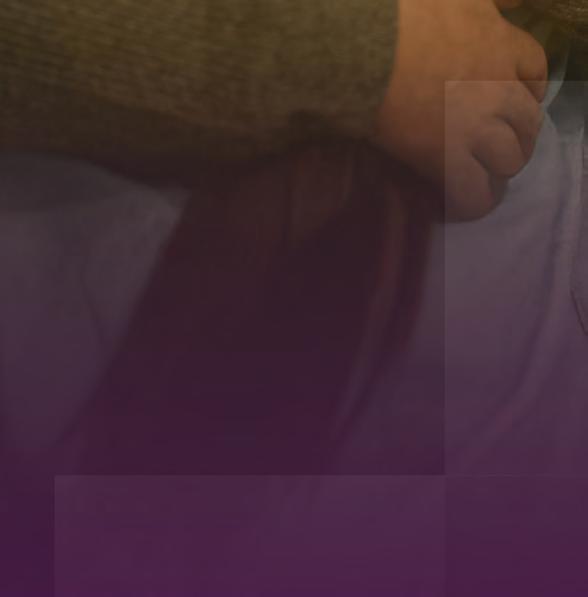



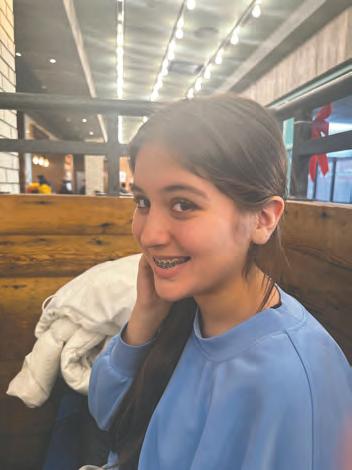
Sophia Alpert , daughter of Karla Cepeda and Lawrence Alpert, will be called to the Torah to become a bat mitzvah on Saturday, May 10, 2025, at Rodef Shalom Congregation. Sophia is a resident of Squirrel Hill where she attends Community Day School. She has been a long-term Sailfish swimmer for JCC. She loves math and science. She loves to visit new cities, including Houston and New York, to visit her extended family. She enjoys reading, cycling, soccer and swimming. She has been a complete blessing to her parents, loved ones and friends.
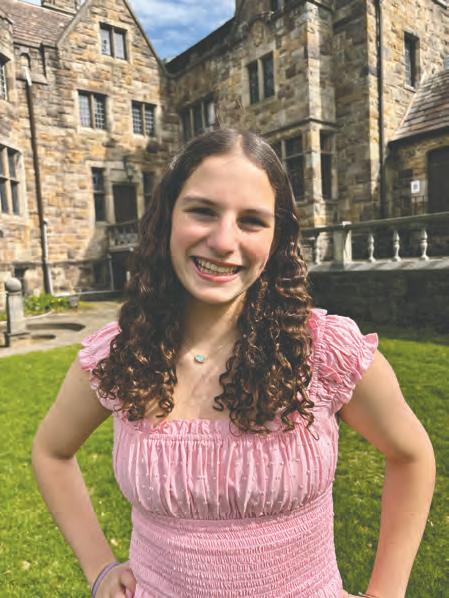
Sivan Blitstein will be called to the Torah on May 10, 2025, as she becomes a bat mitzvah at Temple Sinai. Sivan is the daughter of Gidon and Dana Blitstein of Squirrel Hill and sister to Tali and Liora. Her proud grandparents are Alan and Tsiona Blitstein of Squirrel Hill and Ivan and Rosalyn Platt of Cleveland, Ohio. Sivan attends Colfax middle school. For her mitzvah project, Sivan decorated Shabbat candles to hand out to the local community and is raising funds for StandWithUs, an organization working to combat antisemitism and support Israel. Her goal is $1800. Kol Ha Kavod, Sivan!

Drew Jackson Brindza, son of Jason and CharLee Brindza, will become a bar mitzvah at Adat Shalom during Shabbat morning services on Saturday, May 10, 2025. Grandparents are Barbara Brindza and the late Marshall Brindza, and Dr. Ilene L.S. Kurfeerst and the late Marvin Kurfeerst.




Zoey Hotchkiss, daughter of Lia Snyder and Zachary Hotchkiss, will become a bat mitzvah on Saturday, May 10, 2025, at Beth El Congregation of the South Hills. Grandparents are Michael and Judy Hotchkiss, and Larry and the late Tina Snyder. PJC

Parshat Acharei-Kedoshim
Leviticus 16:1 – 20:27
Eighteen years ago, in May 2007, a 62-year-old man named Moshe Hai Israeli was riding his scooter from Cholon to the Azur Junction. He collided with a cement truck and was thrown to the ground. He lay sprawled out in the middle of the road — and not a single car stopped.
For a full 90 seconds, dozens of drivers swerved past him as if he were just another chunk of cement in the road. Eventually, a motorcyclist stopped, knelt down and saw what had happened. But by then, it was too late. Moshe had died from his injuries.
It’s a chilling story, and it forces us to ask: How is it possible to just keep driving? How can someone see a fellow human being in such a state and not stop?
Some might say, “I was on my way to work,” or “I didn’t know what to do,” or “There are so many problems in the world — how much of a difference can I really make?”
It’s a fair question. When is it your problem? And when is it the world’s?
There’s a powerful mitzvah in Parshas Kedoshim: “You shall not stand by your fellow’s blood” (Leviticus 19:16). Rashi comments: Don’t just stand there and watch someone die when you can help. If someone’s drowning, being attacked, bleeding out — you can’t just say, “Not my problem.” You have to act.
This idea isn’t just spiritual — it’s codified in Israeli law. Inspired by this verse, the Knesset passed legislation that makes it a legal obligation to help someone in distress. If you walk past a person who collapses in the street and you don’t stop or call for help, you can be held legally liable. That’s a huge contrast to places like the U.S. or U.K., where you’re often not required by law to intervene.
But Rashi’s comment is even deeper than it first appears. He doesn’t just say, “Don’t stand by.” He says, “Don’t watch your fellow’s blood being spilled when you can save him.”
Why emphasize watching?







What if you close your eyes? What if you pretend not to see — does that let you off the hook?
places to be. I have problems of my own. I don’t have time, or training, or resources. Can’t someone else do it?
And Rashi answers: The very fact that you saw it means that it’s yours to deal with. If you were meant to look away, God wouldn’t have let you see it. The fact that this particular person, situation or problem showed up in your line of sight — that’s not random. That’s Divine Providence.
You’re not responsible for every problem in the world. But you are responsible for the ones you see. Because the ones you see are the ones that were chosen for you.
The Baal Shem Tov taught that everything a person sees or hears is meant to teach them something in their service of God. Nothing is an accident. If something crosses your path, don’t ignore it. Engage with it. That’s your shlichus — your mission.
And it’s not just about emergency situations. It’s about being awake and present in daily life. Noticing someone who’s overwhelmed at work. Pausing to check on a neighbor. Helping someone who’s been left out or forgotten. These are all chances to say, “I see this. And because I see it, I have a role to play.”
Rashi is giving us a surprisingly practical formula for repairing the world: Don’t worry about fixing everything. Just take responsibility for what you see. Your “corner of the world” — your office, your family, your community, even your inbox — that’s the part of the universe you’ve been entrusted with.
And if everyone did that — if each of us really focused on the problems in our line of sight — the bigger picture would take care of itself. Your friend’s problem would be seen by someone else. Your neighbor’s pain would be noticed by someone in their life. Every gap would be filled.
Redemption doesn’t come from one person solving every issue. It comes from each person addressing their piece.
So what does that look like, practically? Say one kind word. Offer one warm smile. Check in with one person who looks like they’re having a rough day. Be the one who stops, who listens, who cares.
That’s how we change the world — not all at once, but one seen-and-answered moment at a time. PJC



The Lubavitcher Rebbe offers a beautiful insight: Rashi isn’t just stating the obvious. He’s addressing something deeper — the inner voice that says, “Why me?”
Why should I be the one to stop? I have
Rabbi Mendel Rosenblum is director of Chabad of the South Hills. This column is a service of the Vaad Harabonim of Greater Pittsburgh.


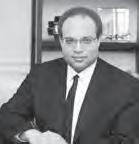


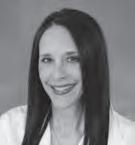


Smith-Rosenthal Team
Jason A. Smith & Caryn Rosenthal
Jason: 412-969-2930 | Caryn: 412-389-1695 Jasonasmith@howardhanna.com Carynrosenthal@howardhanna.com


Baum Blvd.

Sherri Mayer, Realtor Squirrel Hill Office C: 412-760-0412 O: 412-421-9121x225 sherrimayer@howardhanna.com HowardHanna.com
pittsburghjewishchronicle.org
pittsburghjewishchronicle.org





















